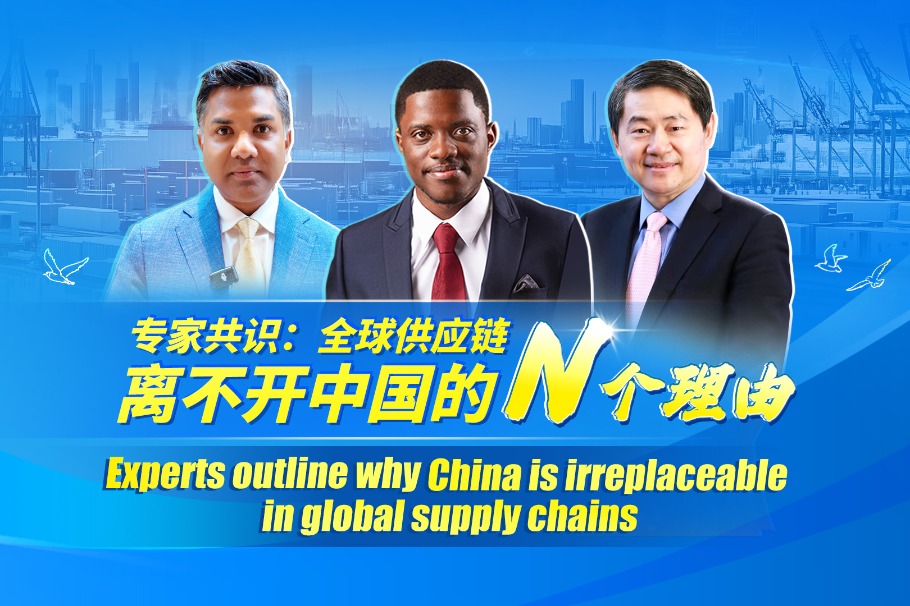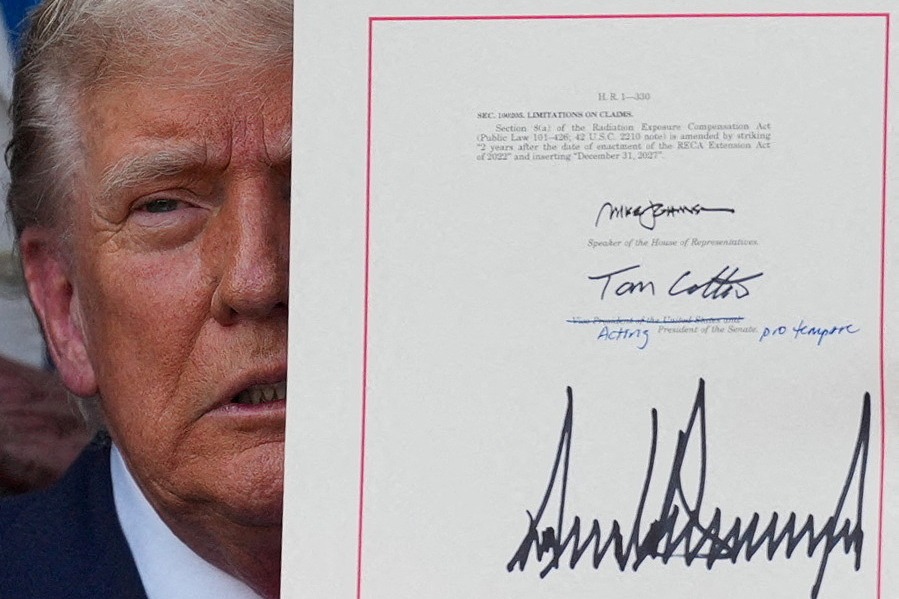IMF chief targets improved growth

Kristalina Georgieva, managing director of the International Monetary Fund, pinpointed two significant challenges threatening global development during a meeting in Riyadh on Sunday: a growth rate she described as "really weak by historical standards", and a "significant divergence" in economic performance among nations.
Speaking at a panel during a twoday special meeting of the World Economic Forum in the Saudi Arabian capital, Georgieva said: "Some countries (are) doing really well and others (are) falling behind. Unless we tackle these two problems, we may end up this decade, being remembered as the turbulent '20s or the tepid '20s, when what we really want is for it to be transformational."
The IMF forecasts that the world economy will continue to grow at a rate of 3.2 percent through 2023,2024 and 2025.
Despite these modest projections, Georgieva remains optimistic about the resilience of the global economy, which she attributes to stronger fundamental growth mechanisms developed during recent years.
She said that "the world has built overall stronger fundamentals for growth", acknowledging both its resilience and the significant challenges it faces.
The resilience, Georgieva explained, comes from prudent fiscal policies and responsible public finance management, particularly following major economic crises.
"Especially after the global financial crisis, and in Asia, after the Asian crisis, governments have implemented sound fiscal policies and managed their public finances responsibly, creating conditions for private sector-led growth," she said, noting such groundwork is crucial for sustaining economic stability.
Looking ahead, the IMF chief called for a continuous commitment to sound economic management.
"What we do is continue to build the strength of our economies by being responsible in our public finances and monetary policies," she said. "There is no substitute for it."
After years of leveraging public finance to support households and businesses, she emphasized the need to rebuild fiscal buffers and strengthen economic foundations.
Georgieva also underscored the importance of leveraging technology and enhancing human capital to propel economic growth.
"It is absolutely essential to unleash the power of technology and pair this with human capital capable of moving across different deployments and opportunities in a more agile manner," she said.
Pivotal elements
She also highlighted the importance of international cooperation and reinforced trade as pivotal elements for sustained economic progress.
Reflecting on past achievements and ongoing challenges, Georgieva offered a broader historical perspective, praising technological advances and capital deployment for their roles in improving life and increasing wealth over the decades. Yet, she also pointed out the failures in equitable growth distribution, noting, "We still have almost 800 million people who are hungry. We failed to more inclusively share the benefits of this growth".
Ending on an optimistic note, Georgieva expressed hope for the future, envisioning a century of prosperity that is more evenly distributed among all people.
The World Economic Forum Special Meeting on Global Collaboration, Growth and Energy for Development, which ran until Monday, had participation from 1,000 leaders from 92 countries.
Today's Top News
- Israel's Gaza takeover plan widely condemned
- S. Korea visa waiver spurs surge in travel interest
- Top cities signal easing to support property market
- Ties bolster heritage protection
- Gaza 'takeover' will ignite another horrific chapter for the Middle East: China Daily editorial
- STAR shines for innovative companies






























